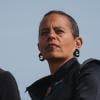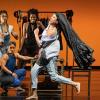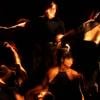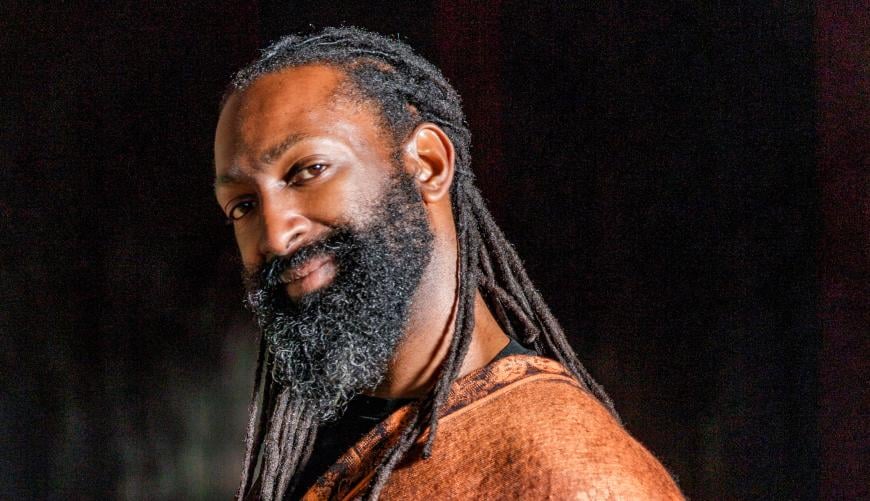
The genius of any artistic masterpiece is often revealed in the first few moments, but the most thrilling, marvelous works also hold secrets and surprises. The complete reveal comes only with time, patience, and deep attention.
And so it is with dancer Antoine Hunter. An early glimpse of the 4-year-old Hunter would have shown an overly ambitious breakdancer attempting to perform spins on cardboard and suffering a knee injury severe enough to warrant a trip to the hospital. Some years later, attending Oakland Ballet’s The Nutcracker with his mother, he was mesmerized, but both of them knew there was little money for things like ballet classes. Besides, Hunter was then, and is now, a member of the Deaf community: What good would dance class be? Attending Skyline High School, he was lonely, isolated, victimized, and even contemplated suicide, until he enrolled in a dance class and an angel appeared in the form of its teacher, Dawn James. She encouraged him to create a solo to Whitney Houston’s “I Will Always Love You.”
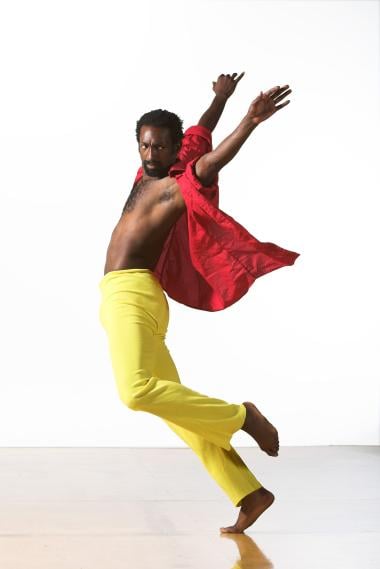
It was an auspicious beginning, but even so, few could have foreseen the Hunter of 2023, who proudly claims his full “two-spirit” identity as Antoine Hunter and Purple Fire Crow (a name from his Indigenous heritage). He is an internationally recognized choreographer, dancer, and educator, artistic director of San Francisco’s Urban Jazz Dance Company, founder of the Bay Area International Deaf Dance Festival, and a former president of Bay Area Black Deaf Advocates. On Dec. 4 of this year, Hunter was in New York City, onstage at 92NY as a celebrated honoree at the 2023 Dance Magazine Awards.
There, he spoke about how dance “saved his life” and how any person not finding a place, a home in this world, must make one. In his concluding remarks, Hunter said, “Folks in the Deaf community and the disabled community bring more power to the dance community as a whole. We don’t want to be a token, we don’t want to be here and gone. We want to build family.”
In an interview 10 days after the event, Hunter picked up the threads of those themes and spoke to his vision for the future.
When he learned he’d received the highly respected Dance Magazine Award, his thoughts immediately went to the Deaf community. “It was more than just me winning,” he explained. “It was all of us. The Deaf community is a community of wide-ranging culture. There are so many backgrounds: people in wheelchairs, people who are blind, so many specialties. Some people think it’s a community that needs to be fixed. But we’re the X-Men, the disabled supermen and superwomen who use their superpowers differently.”
The people with whom he most wanted to share the good news were “the angels who touched my life,” he said, mentioning his mother, dance teacher James, mentors, and the dancers with whom he is privileged to work. Many of these individuals, along with Hunter himself, had always sensed that there was a force moving within his muscular, lengthy body that could not be denied and so wholeheartedly supported him. “Dance has saved my life, and it was my ministry to use dance to come together, to find a voice, to listen to myself. At an early age, there was strangeness to me. My identity of being two spirits was different. People don’t realize we’re moving constantly and there’s a moment to be still, but we move to stay alive.”
Increasingly, Hunter feels seen. “We’re awakened to our true calling to move, to connect. I got that early, and maybe people understand it more now than they did then. People know more, and they’re starting to wake up.”
Waking up isn’t dependent on physical hearing or sight, he insists, but on deep listening. “I may stand between two people who are hearing, but that doesn’t mean they know how to listen. True listening is found in many places. It can come from reality, a dream, music, chance, dance, meditation, water, earth, fire, many stories. It requires you to open your mind, heart, spirit, and allow your vessel to connect. It can be hard and scary to [toss away] everything you’ve learned and start again.”
Awakening, for Hunter, came from a life-altering experience at a preteen camp: “I nearly drowned at camp. I didn’t use the word ‘woke’ at that moment, but as I got older, that moment was when I began to see the world differently. I see a world full of energy, and we belong to each other. We are all worthy of being.”
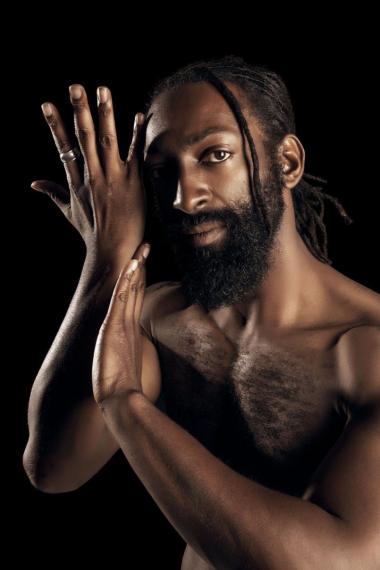
Hunter likens his worldview to “swimming among fish and flying among birds” (also an apt description of his choreography) and says that our spirits would contain more compassion and hold greater wisdom if we listened better. “Not always agreeing but empathizing. We can relate to a lot even if it’s not what we are. Thousands of years ago, a different Indigenous culture tried to step in and teach us. Maybe identities and the world in the past were more substantive. We have to reteach and reclaim that. If we get reconnected, we’ll move as who we are. There’ll be more dancing and celebration among all the spirits within animals, humans, nature.”
Hunter is already engaged in planning the 12th annual Bay Area International Deaf Dance Festival, featuring artists from Africa, Colombia, India, and other places. “I bring international artists as well as local because it’s important to understand [that] within Deaf culture there are other cultures. Also, people feel safe to perform here, and when they dance, they get real support. They are paid and get to say what lighting they want — things they’ve often never had before. It’s uplifting and empowering.”
Of course, part of Hunter’s leadership includes securing financial support for his dreams. A constant worry is paying his dancers enough to be able to live and make art. “We don’t stop during times when others take vacations. We say, ‘What is that, intermission?’ I’m so grateful to have the dancers we have, so grateful to help them survive in this world.”
Hunter is comfortable as a spokesperson for the Deaf community. “I’ve always been fortunate and passionate. I try to get people to understand about Deaf land. When we apply for grants, it is hearing people who have the money, who get to determine the funding. That’s unfair. I’ve seen money given to other people that doesn’t get to my community. Deaf people can lead. Definitely, Deaf people with a capital D.”
Asked to imagine what he’d like a conversation one year from now to include, Hunter replied, “I hope we talk about the Deaf community being in front of the world and my dance festival being presented around the world. And about the lives we save — because dance saves lives. Hopefully, we’ll be talking about dance in our elder bodies. Hopefully, we will not be talking about dancing robots.”


